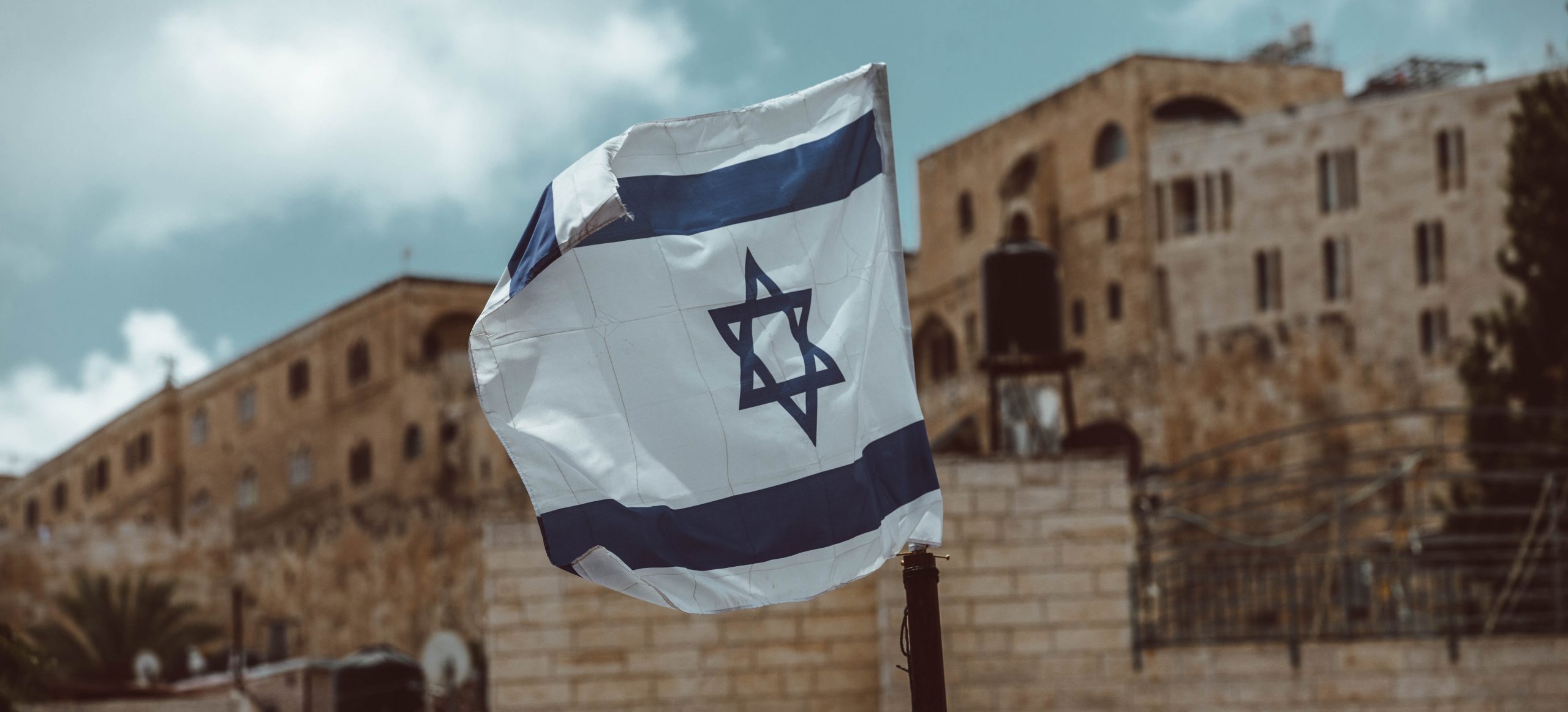
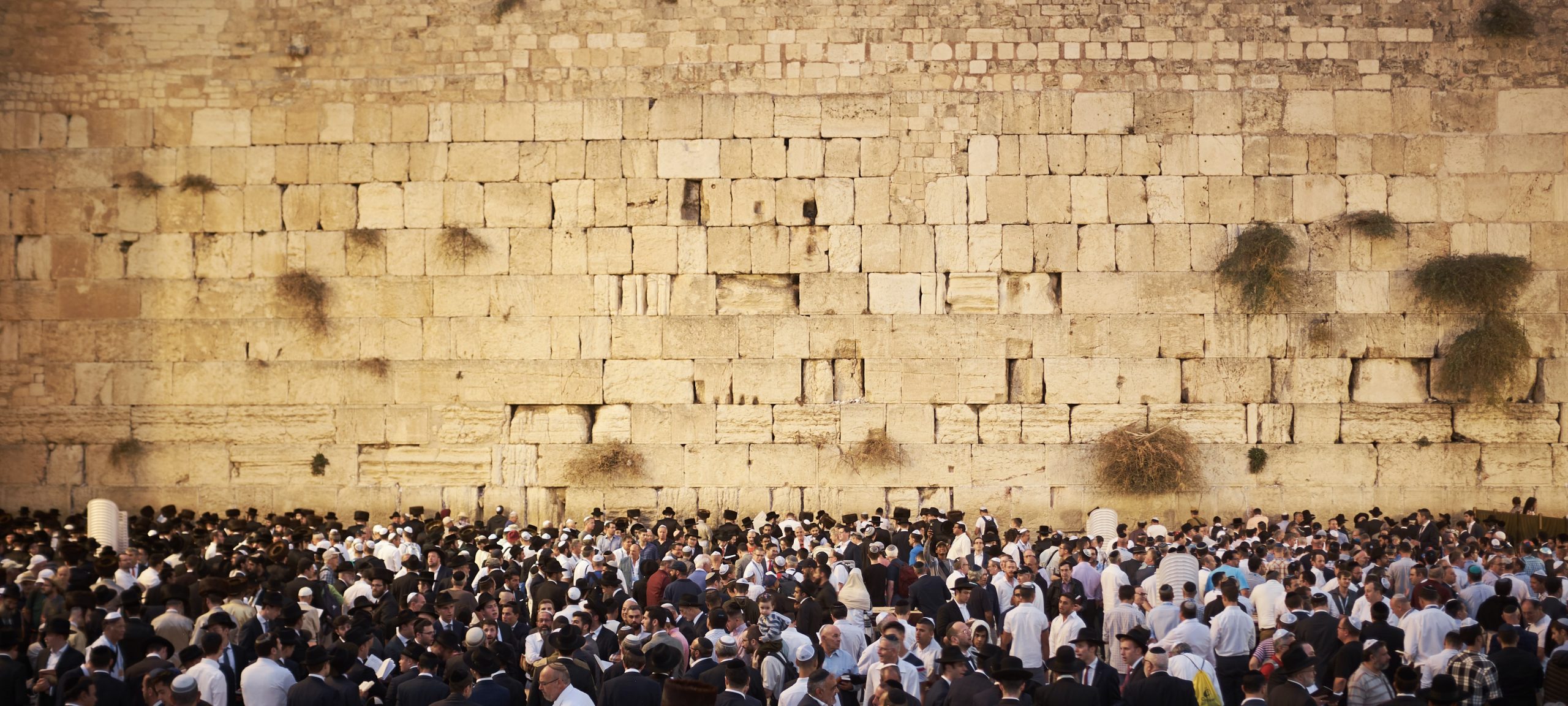
Jewish worshippers at the Western Wall in Jerusalem
If you live outside Israel, you likely think of Passover as an eight-day holiday. However, the Torah actually refers to Passover (called Pesach in Hebrew, as well as Chag HaMatzot or "Festival of Matzah") as seven days long, and that's the holiday's length in Israel to this day.
Passover started this year at sundown on Wednesday, April 5th for Jewish communities everywhere, and will end at nightfall on Wednesday, April 12th in Israel and Thursday night, April 13th in the diaspora.
The reason for this discrepancy is a millenia-old Rabbinic law mandating that Jewish communities outside the Land of Israel celebrate most holidays for an extra day, as a precaution due to calendar uncertainty. And even though the Hebrew calendar is standardized today and Jews around the world can be sure of the exact date, the custom of Yom Tov Sheni (Second Holy Day) outside Israel has persisted to this day.
Israelis, however, are happy to end Passover after the Biblically mandated seven days. Only the first and last day are considered a Chag (official Holy Day with traditional work restrictions) in Israel, while Orthodox and other very traditional Jews in the diaspora keep two days of Chag at the beginning and end of the holiday. In addition, the Seder is only held on the first night of Passover in Israel, as opposed to the many traditional diaspora communities who repeat it on the second night.
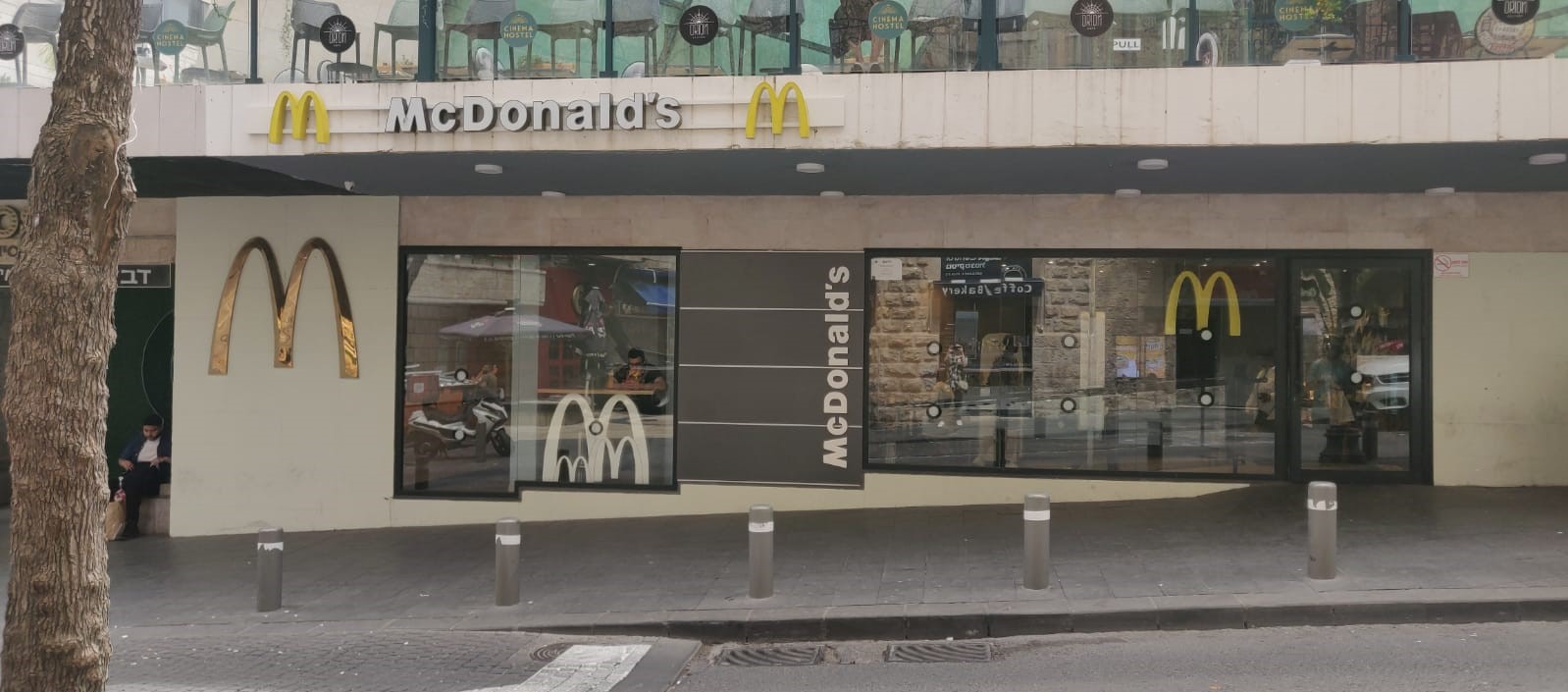
A McDonald's branch in Jerusalem
For many Jews, one of the best things about being in Israel during Passover is the abundance of kosher-for-Passover food options!
Any kosher restaurants that wish to remain open during the week-long holiday must receive a separate Passover certification and be totally free of chametz (leavened grain products), which usually means coming up with a separate, Passover-only menu. Many Israelis are excited to go out to eat during Pesach and try something new, all while keeping the holiday's traditional food restrictions.
Even some of the restaurants and fast-food joints that aren't otherwise kosher offer chametz-free options during the holiday, for the many Israelis who may not be normally very observant but are strict about Passover. While McDonald's, for instance, has both kosher and non-kosher branches in the country, many of the non-kosher locations also either go totally chametz-free or offer both kosher-for-Passover and non-Passover options.
Not only Israeli humans abide by a Passover diet! Israel's zoo animals get special, chametz-free food during the holiday, as do many household pets around the country.
While Judaism doesn't require animals to keep mitzvot (commandments), many observant Jews believe they themselves cannot own or benefit from chametz foods during Passover, even ones that are fed to animals. As a result, grain-free, no-chametz pet food is available for Israel's cat and dog owners, and even zoos switch to kosher-for-Passover fare for animals that normally eat grains.
Israel's Ramat Gan Safari Park gives matzah to its apes as a special treat during the holiday, which they seem to love and appreciate!

Israeli non-Jewish citizen Hussein Jabar (far left) meets with the nation's Chief Rabbis and Prime Minister to buy the government's chametz ahead of Passover 2015 (Photo by Haim Zach/GPO)
Sometimes cheekily referred to as "Israel's largest trade deal," Israeli Jews as well the government itself sell their chametz to non-Jews for the duration of the Passover holiday.
Since, as mentioned above, many Jews believe they may not own any leavened grain products during Passover (in addition to not consuming or benefitting from them), observant Jewish households that still have chametz in their possession on Erev Pesach (the day before Passover) will typically sell them to a non-Jew. This can be a great solution for that expensive bottle of whiskey or Costco-sized stash of pasta one doesn't want to get rid of; a sale is done through one's local rabbi or rabbinic organization, through which the chametz formally belongs to a non-Jew during the holiday and reverts back to its original owners once Pesach is over.
And while many Jews around the world participate in this sort of chametz sale, the country of Israel does so on a national scale as well!
The Israeli government designates a non-Jewish citizen every year to become a week-long owner of all the chametz previously belonging to Israeli government ministries, the police and army, state-owned food companies and food distributors, as well as private restaurants and stores whose chametz sales are facilitated by the Israeli Chief Rabbinate.
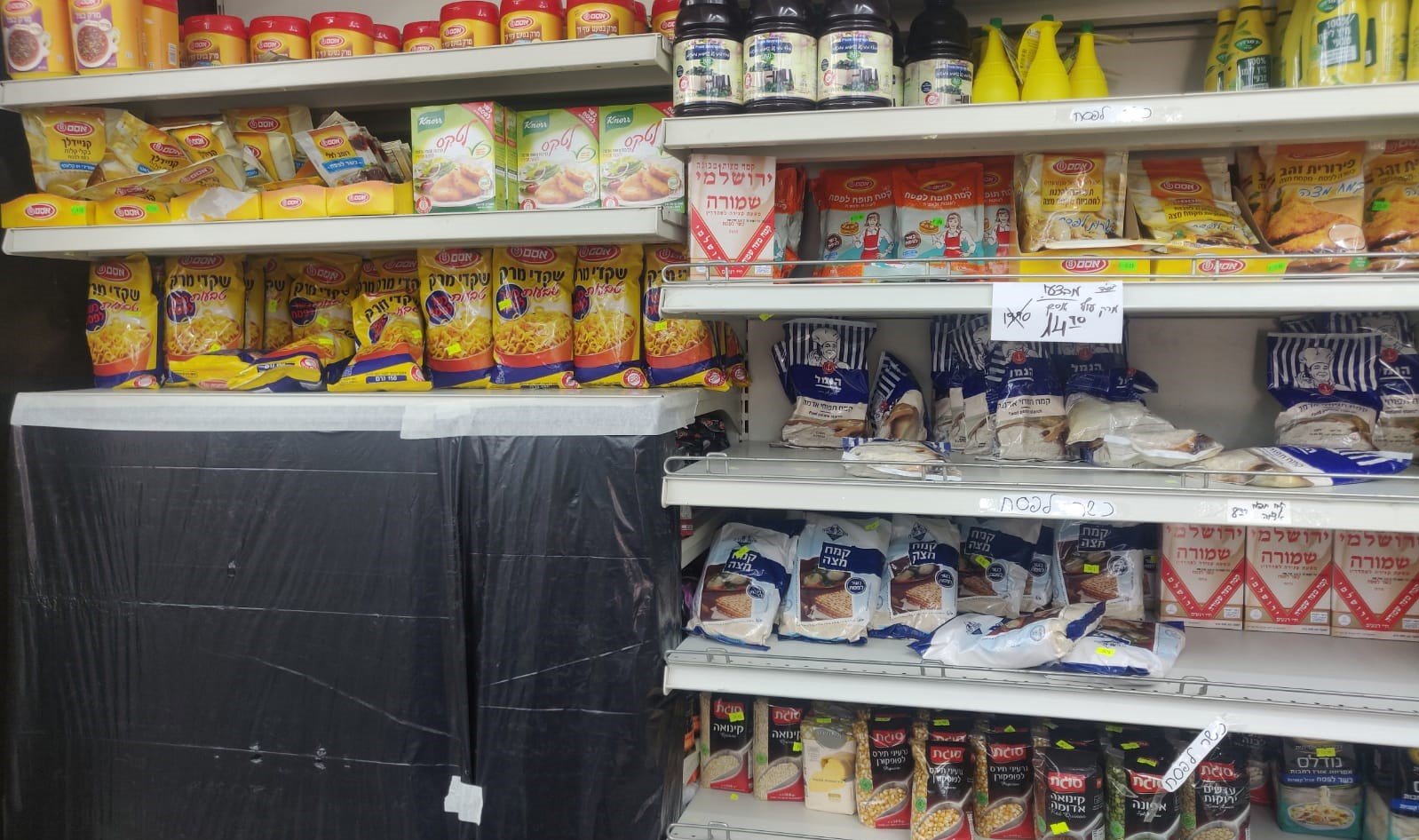
Inside a grocery store in Jerusalem, with chametz products taped off and unavailable, and technically under the ownership of a non-Jew for the duration of the holiday
For the past several years, the honor of owning Israel's chametz has gone to Hussein Jabar, an Israeli Muslim from the Arab city of Abu Ghosh. A manager at the Hilton Hotel in Jerusalem, Jabar is a trusted friend of the Jewish community and has been proud to help Jews observe Passover in this special and important way.

Celebrating the "Festival of Spring" in Israel (Photo by Yoni Schwartzman of Yoni Art Company)
While not all Israelis are Jewish, and not all Israeli Jews are observant, Passover season still means a celebration for the entire country.
The Christian holiday of Easter usually coincides with Passover, while the Muslim holy month of Ramadan may fall during or around the same time as well - in fact in both 2022 and 2023, all three holidays occurred simultaneously. That means festive religious celebrations for all of Israel's major faiths!
In addition, Passover is also known in Israel as Chag HaAviv, or the Festival of Spring, and therefore has an additional association as a secular celebration of blooming flowers, warm weather, spring cleaning, and a general festive mood.
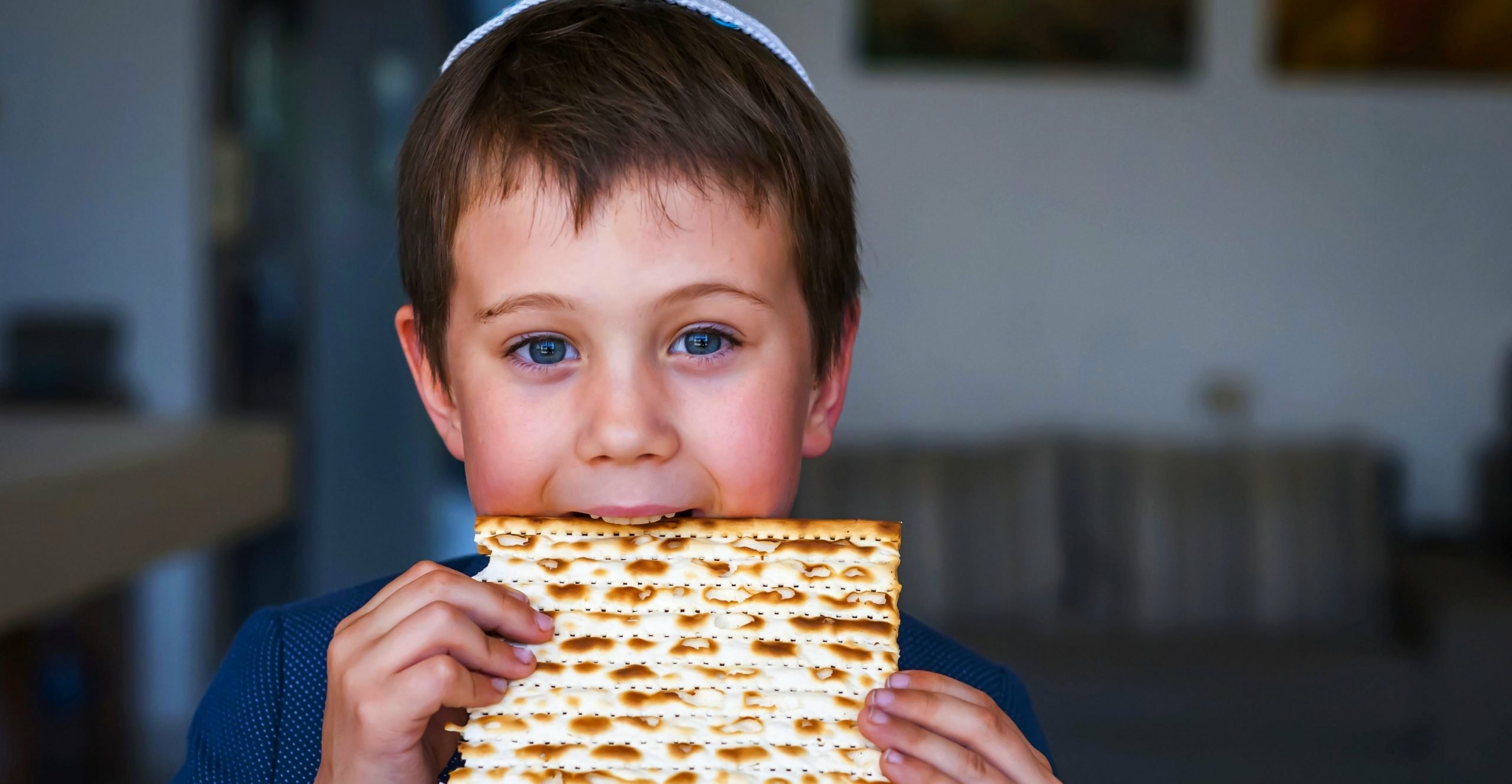
Passover is considered a fun holiday for the whole family in Israel!
And although most Israeli Jews don't identify as religious, the vast majority attend a Passover Seder, eat matzah and other traditional holiday foods, and overall observe the holiday in some way. Schools are closed for the duration of the week-long holiday and many people are off work, making it a major family holiday full of fun outings and celebrations. In fact, together with Rosh Hashanah and Yom Kippur, Passover is one of the top three holidays celebrated by most Israelis!
Celebrate your love of Israel and your Jewish pride with our Israeli Independence Day gifts and cool and unique Jewish gifts, shipped straight from Jerusalem to your door!
Subscribe to JudaicaWebStore mailing list to receive updates on new arrivals, discounts and special offers
IL GLOBAL INC
3 Germay Dr Ste 5 PMB
23545 Wilmington, DE 19804,
USA





Owned by IL GLOBAL INC maintains its offices and warehouse in Jerusalem, Israel.© 1999-2024 Buy unique Israeli Judaica, for sale exclusively online
Owned by JWG Ltd, maintains its offices and warehouse in Jerusalem, Israel. © 1999-2022 JWG Judaica and Dead Sea Cosmetics

